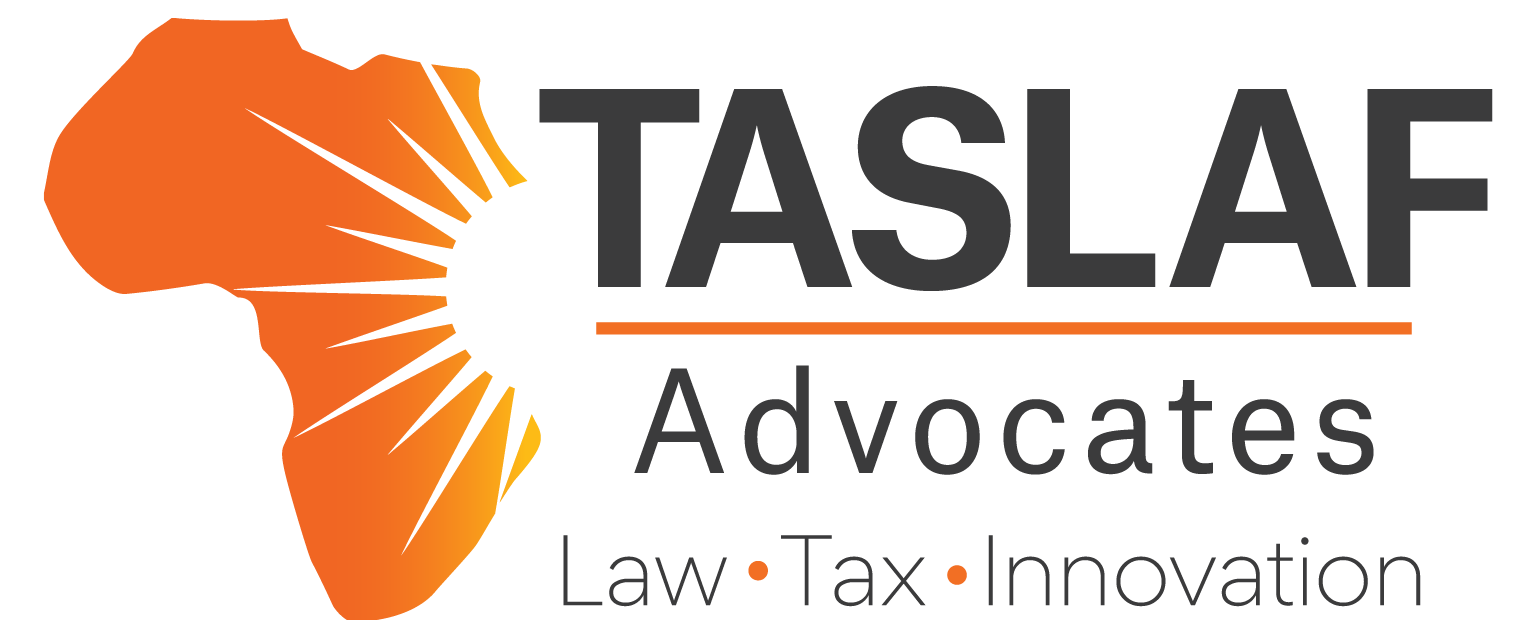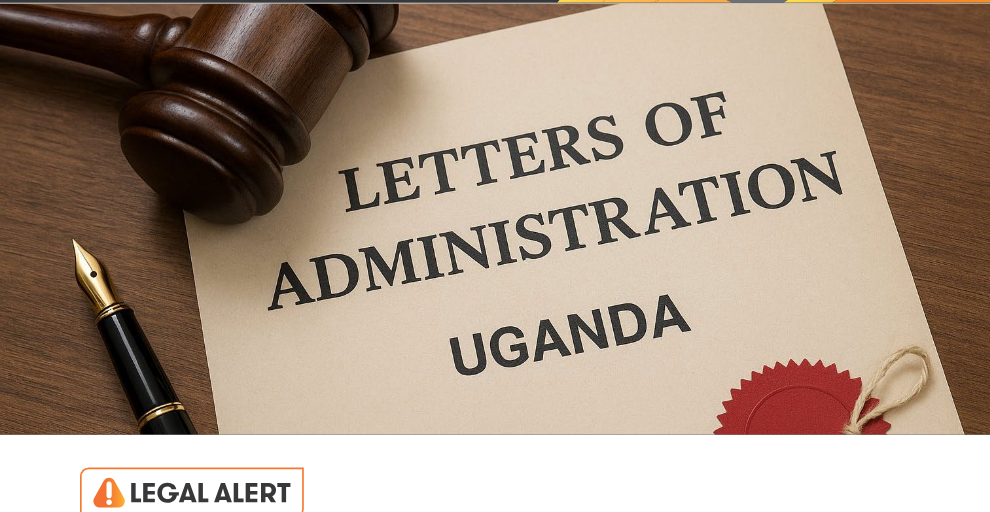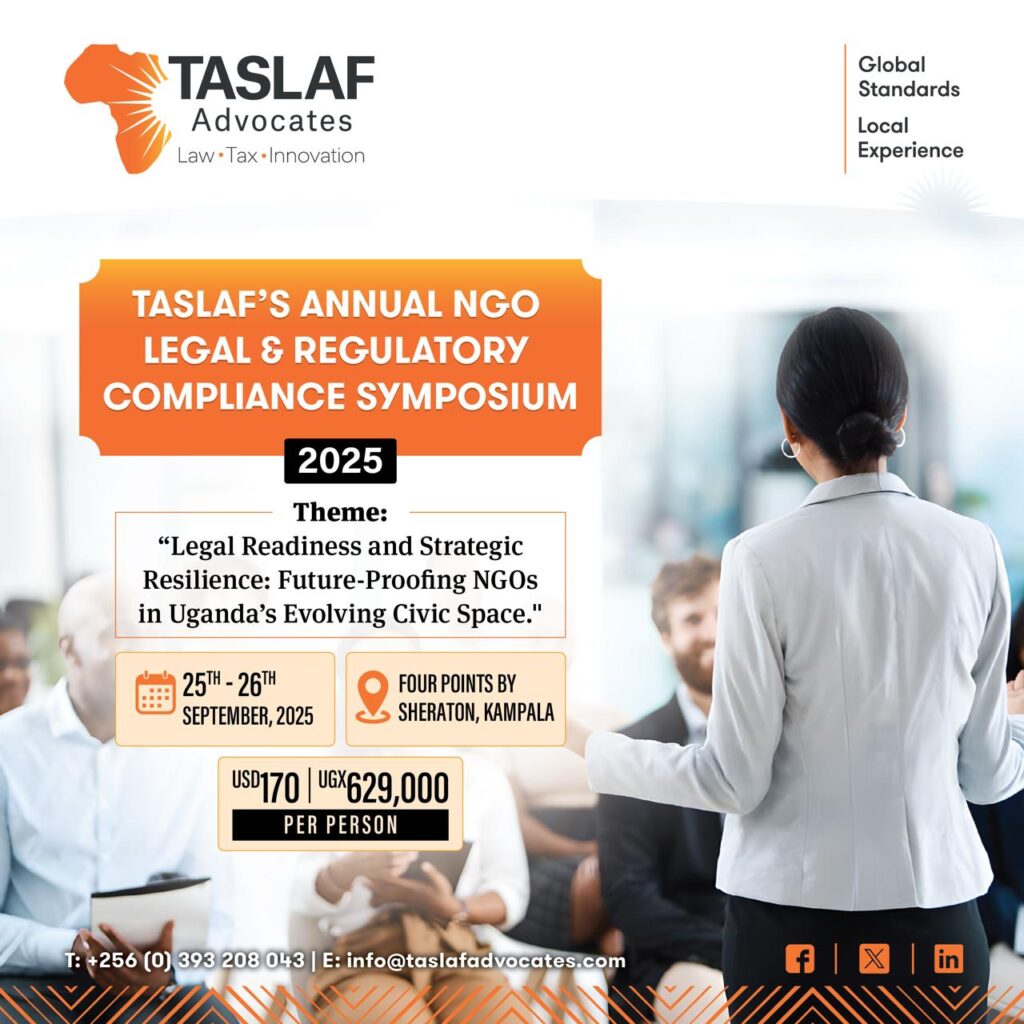1. BACKGROUND.
1.1. Estate planning is not just a thoughtful process for everyone to manage their
valuable assets, both during their lifetime and after they are deceased. In Uganda, our Laws provide a clear roadmap, empowering you to make confident decisions about how your property should be handled.
1.2. This proactive approach helps to significantly reduce misunderstandings among
the beneficiaries and ensures a smooth, peaceful transition of ownership. As our Legal landscape evolves and awareness grows, it’s more important than ever for individuals to take charge and organize their estates.
1.3. This article will guide you through the legal steps involved in obtaining Letters of Administration or a Grant of Probate, explain the vital responsibilities of an administrator or executor, and crucially, explore what happens and what to do if
these important documents expire.
2. LEGAL FRAMEWORK GOVERNING ADMINISTRATION OF ESTATES IN
UGANDA. THE SUCCESSION ACT, CAP 268.
2.1. This is the primary law that guides the public on both testate succession, where the deceased has left a valid will and intestate succession, where the deceased does not leave a valid will.
2.2. The Act prescribes the due process for obtaining letters of administration – intestate succession as well as that of acquiring a grant of probate – testate succession.
2.3. This Act also serves a vital purpose; it provides crucial protection and security for
the surviving spouse, direct descendants, and other dependent relatives.
3. TYPES OF SUCCESSION.
3.1. TESTATE SUCCESSION (DYING WITH A VALID WILL);
3.1.1. This is where a person dies when he/she has disposed of his/her property by a valid will. It has been provided for under the Succession Act, Cap 268 from sections 29 to 38.
3.1.2. In order for a will to be valid, the following must be present;
(i) The person making the will (testator) should be of sound mind.
(ii) The will must be in writing and duly signed.
(iii) Each page of the will must be signed by the testator or someone in the
testator’s presence at his/her direction.
(iv) The testator’s signature must be witnessed and attested to by two or more
witnesses who have seen the testator append his/her signature.
(v) The testator and witnesses must sign on each page of the will and include
their names and addresses.
3.1.3. In this instance, the named executor(s) in a will can go ahead and apply to court
for a grant of probate in order for them to deal with the estate of the deceased legally.
4. INTESTATE SUCCESSION (DYING WITHOUT A WILL);
4.1. Where one dies without a will, Court can issue letters of administration to authorize a fit and proper person to manage the estate of the deceased. In such instances, family members typically nominate one or more individuals
during a family meeting.
4.2. The following are the step plans involved in acquiring letters of administration.
• Obtain a death certificate for the deceased person.
• Hold a family and appoint the administrator(s).
• Go to the Administrator General’s Office and open a file.
• Fill out the death notification form in the file.
• Include details about the property, beneficiaries and prospective
administrator(s).
• Apply for a certificate of no objection.
• With the certificate of no objection, the applicant(s) shall apply to court for a grant of letters of administration depending on the value of the estate.
• The application must then be advertised in the gazette for a period of 14 days. Where no objection is made to the application, Court may go ahead and
grant the letters of administration.
5. DUTIES OF AN EXECUTOR/ADMINISTRATOR.
5.1. Once the Court issues a Grant of Probate or Letters of Administration, the executor or administrator has a clear path to begin distributing the estate’s property. This process should commence immediately.
5.2. To ensure transparency and accountability, the executor/administrator is required
to file an inventory of the estate within SIX MONTHS of receiving the grant.
5.3. After the estate has been fully managed, which includes settling any debts, distributing assets, and submitting all necessary reports, the administrator or executor must then present a final account of the estate. This final account, due within ONE YEAR, details all assets received and how they were distributed.
6. EXPIRY OF LETTERS OF ADMINISTRATION.
6.1. It’s crucial to understand that becoming an administrator or executor isn’t a permanent role. The administrator is required to fulfill their duties and finalize the distribution of the estate, not to manage it indefinitely.
6.2. Under section 337(2) of the Succession Act, Cap 268, a grant of probate and letters of administration that were issued before 31 st May, 2022 would continue in operation for a period of 3 years before they expire. These are expiring on 31 st May, 2025.
6.3. In essence, this means that the holder of Letters of Administration or a Grant of Probate is expected to have distributed the estate to the beneficiaries and filed the final account in court, thereby fulfilling their lawful duties.
6.4. Crucially, however, an expired grant does not mean that beneficiaries lose their rightful inheritance. Their claim to the estate remains secure, regardless of the grant’s status.
7. RENEWAL OF LETTERS OF ADMINISTRATION AND LETTERS OF PROBATE.
7.1. However, under section 337(4) the law has made an allowance for the application
for extension of the duration of a grant of probate or letters of administration for a reasonable time as to be determined by court.
7.2. In this case, Court will make a decision upon evaluating the reasons presented
by the applicant(s) before such extension is granted. Once an application is granted, the administrators will continue to administer the estate till it is disposed off with in the time frames granted by court.
7.3. Where Court denies the Applicant extension for the grant of probate or letters of
administration, the only available option is to apply to court for a fresh grant in the manner prescribed above.
8. CONSEQUENCES OF DEALING WITH THE ESTATE OF THE DECEASED
WITHOUT VALID LETTERS OF ADMINISTRATION OR LETTERS OF
PROBATE.
8.1. Attempting to manage or distribute a deceased person’s estate without valid Letters of Administration or a Grant of Probate is a significant legal risk and an
offense under the Act.
8.2. Individuals who “intermeddle” in an estate without holding these essential documents can face serious penalties if convicted, including fines of up to UGX 20,000,000 (one thousand currency points), imprisonment for up to ten years, or
both.
8.3. Intermeddling includes children and other relatives who may want to deal with the
estate of a deceased person according to their wishes.
8.4. It is important to note that any transaction occurring during the period in which
Letters of Administration or a Grant of Probate have expired will be rendered void and is subject to being set aside by court.
9. WAY FORWARD.
9.1. The authority granted by Letters of Administration or a Grant of Probate isnt open-ended; it comes with very clear responsibilities and strict timelines.
9.2. This structured approach is essential for a reason: it guarantees transparency throughout the process and, most importantly, protects the interests of everyone who stands to benefit from the estate.
9.3. Therefore, administering an estate isnt just about managing assets; its about providing proper legal closure to a persons life and affairs, ensuring their final wishes are honored with integrity.
 Diana Kyobutungi, MCIArb
Diana Kyobutungi, MCIArb
Partner
M: +256 759 757 180
E: dkyobutungi@taslafadvocates.com
 Kevin Ayebare
Kevin Ayebare
Principal Associate
M: +256 787 726066
E: kayebare@taslafadvocates.com
 Mr. Benjamen Ayongyera
Mr. Benjamen Ayongyera
Legal Associate
M: +256 778 512 680
E: bayongyera@taslafadvocates.com
 George Okitoi
George Okitoi
Legal and Tax Associate
M: +256 781 843 633
E: gokitoi@taslafadvocates.com




